How to fight loneliness epidemic in Australia and live longer through random acts of kindness
Aussies who lose social contact are more at risk of dying than those who stay connected. But there are ways we can all help each other.
People who lose contact with social groups after they retire from work are far more likely to die early than those who use their retirement to join new groups and take up hobbies.
And while most people devote hours to financial planning ahead of retirement, most spend little or no time on social planning, despite it being four times more likely to impact on post-retirement quality of life.
Professor Alex Haslam, a Laureate Fellow at the University of Queensland’s School of Psychology, was part of a research team which found people who were members of two social groups and maintained those links after retirement had a 2 per cent chance of dying in the first six years after they finished work.
If they lost connection to one of those groups, their risk of dying rose to 5 per cent. If they lost both groups, their risk of dying skyrocketed to 12 per cent.
On the flip side, those who used retirement to make new connections to groups had only a 0.41 per cent chance of dying if they added two additional social groupings to their lives.
“So there’s something like a 25-fold difference between those two things,’’ Prof. Haslam said.
“Gain two groups, you’ve got a very small chance of dying. Lose two groups, you’ve got more than a 25-fold increase chance of dying which is absolutely massive.’’
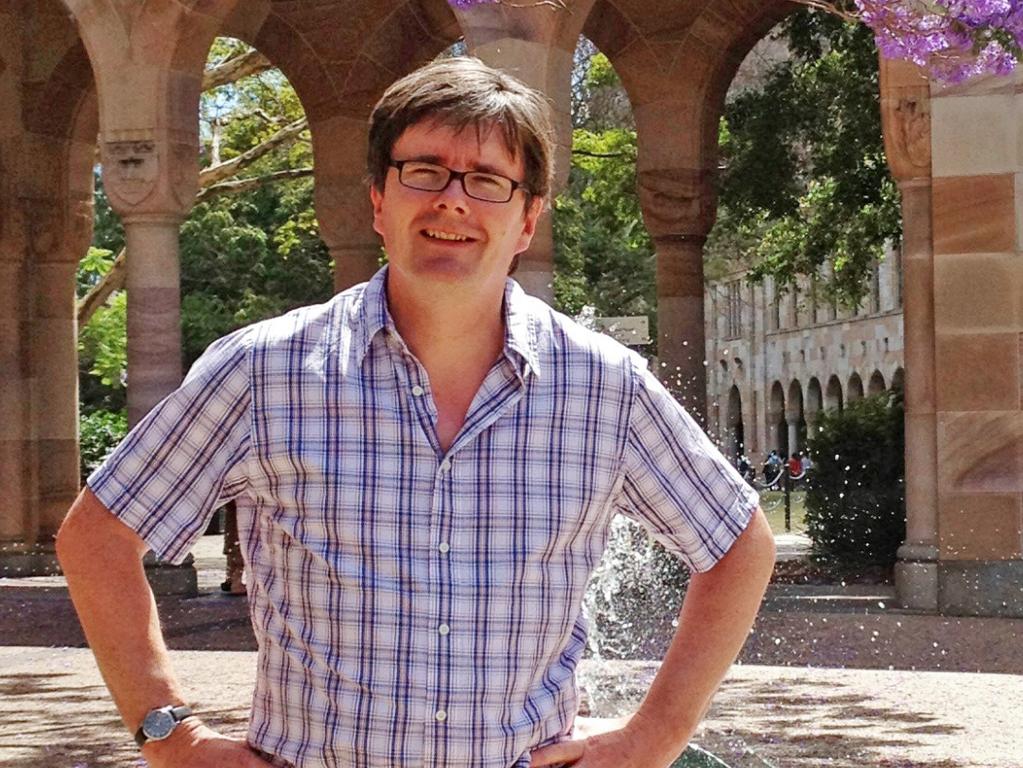
The study, which took into accounts factors such as prior health status, showed the importance of retirees maintaining or making new group connections to stave off loneliness.
Prof. Haslam said retirement was a “critical juncture’’ which often saw people’s group memberships change.
“For some people life gets a lot better and for some people a lot worse and their risk of dying is elevated or decreased as a function as to what happens at that juncture,’’ he said.
Prof. Haslam said people invested enormous energy and thought into planning their financial future after retirement, but almost no social planning was done.
Senior researcher and clinical psychologist Tegan Cruwys, from ANU in Canberra, led a research project last year which showed financial security was important for retirees because it enabled social connection.
Prof Haslam said Dr Cruwys’ study showed “the social planning you do accounts for about four times more variance in your quality of life than the financial planning that you do.’’
He said there were entire industries built around retirement financial planning, such as the superannuation industry, but not for social planning.
“It just sort of goes missing in action,’’ he said.
He said this showed the true value of money in retirement.
“We often think that the value of money when we retire is that money helps us to buy things and do things but what that paper also showed is that the critical things that money allowed us to do is to service group-based connections.
“Joining a cinema club or a book club or a theatre group, obviously a lot of those things require money and one of the key things you can use money to do is to increase social engagement.
“Which is also why poverty is one of the things that predicts loneliness. If you haven’t got money you can’t actually socialise in particular ways.
“Money is important but its primary importance is in supporting social connectedness and staving off loneliness. Having money won’t stop you being lonely. Spending money on group memberships will.’’
RANDOM ACTS OF KINDNESS CAN HELP LONELINESS EPIDEMIC
Small acts of community kindness have been shown to reduce the impact of loneliness.
An international study conducted last year during COVID lockdowns across Australia, the UK and the US showed one small act of kindness a week was enough to start building social connections.
The study of 4500 people, carried out for community hub Nextdoor, found that knowing six neighbours was enough to lower loneliness concerns and reduce anxiety about the health and financial impact of COVID-19.
It comes as two of Australia’s most-recognised aged care providers join forces with News Corp Australia’s Never Walk Alone campaign to help end the loneliness epidemic.
HammondCare CEO and former NSW Premier Mike Baird said he hopes to create “a volunteer army”, which everyday Australians can join, while Bupa is ramping up its Visits by Mail program, where schoolchildren write letters to residents.
“Whether it’s a close family member calling in for a chat, a volunteer taking the time to have a cup of tea, or a child dropping in a handmade card or letter, these small moments are incredibly meaningful,” Bupa Villages and Aged Care Managing Director Suzanne Dvorak said.
Lead researcher and expert on loneliness Dr Michelle Lim from Melbourne’s Swinburne University said the key to the small acts of kindness was they could be carried out by everyday people in the community and cost nothing.
“We asked people to do one act of kindness per week – go say hi to a neighbour, check in on an elderly person, run errands,’’ Dr Lim said.
She said one in 10 people had reported feelings of loneliness before the trial.
One month later, that figure had reduced to 1/20.
The people taking part in the study provided emotional support such as cheering up or listening to a neighbour, tangible support such as mowing lawns and running errands, informational support, such as providing helpful information about local medical services or potential job opportunities, and companionship, such as telephoning a neighbour or chatting over a fence.
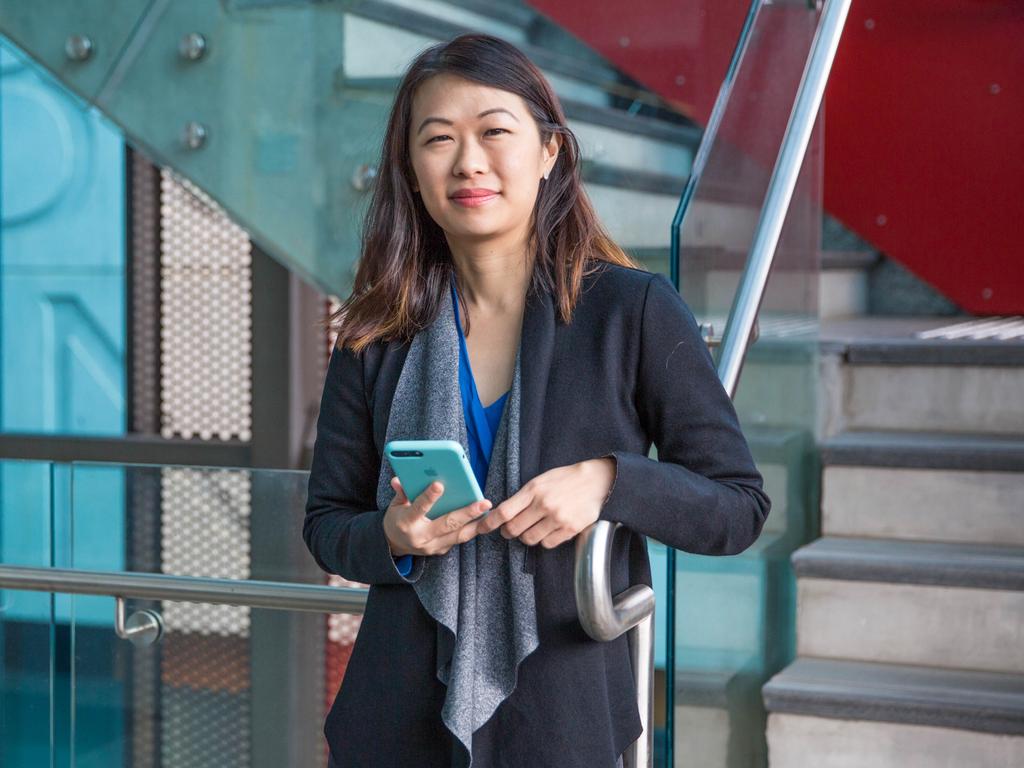
Some contributed to larger community efforts such as collecting rubbish or volunteering.
Dr Lim said the global study was the first of its kind.
“It’s the first randomised controlled trial study examining the impact of kindness on loneliness and social isolation,’’ she said.
“The fact that we were able to find changes — particularly with relatively small, simple steps that do not cost any money – is remarkable.”
The US researcher on the project was Dr Julianne Holt-Lunstad from Brigham Young University, whose groundbreaking work a decade ago first established how loneliness impacted a person’s health, and determining it was as dangerous as smoking 15 cigarettes a day.
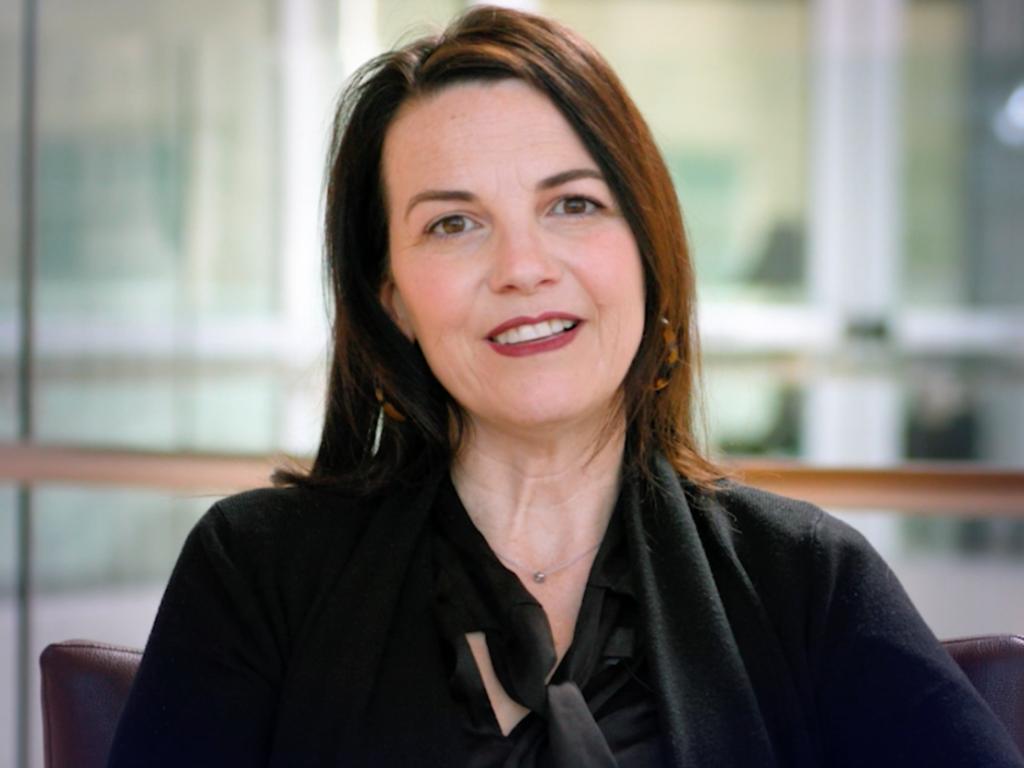
The US-based online platform Nextdoor operates globally, including in Australia, and works by bringing neighbours together to build stronger communities.
Around 40 per cent of all Australians in aged care facilities receive no visitors at all – a number that increased dramatically during 2020 as states and territories across the country went through various stages of lockdown.
“A very bad and challenging problem became even worse,” Mr Baird said.
“There were months and months where the vast majority of residents weren’t seeing anyone other than those that are coming in and caring for them.
“We’ve all got a role to play, and there’s an opportunity for all of us here.”
HammondCare runs a volunteer program that services their aged care homes, dementia cottages and home care services.
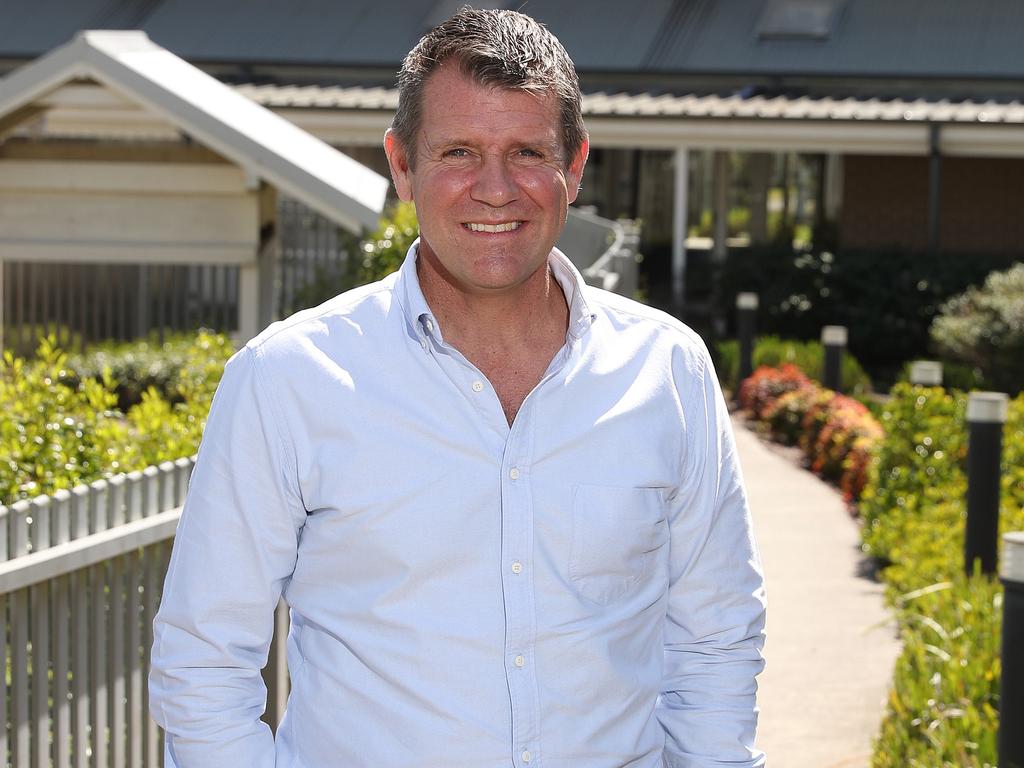
Volunteers must show proof they are currently vaccinated for the flu, as well as be subjected to other vetting processes.
Once accepted, volunteers are provided with training and tasks could include anything from visiting residents and taking part in craft or music activities, group discussions, cooking or helping with gardening or assisting with administration work.
Ms Dvorak said Bupa’s volunteers play a vital role, explaining, “residents absolutely light up when they have visitors to connect and engage with”.
Bupa’s Visits by Mail program, which encourages kids to correspond with residents through writing letters, drawing pictures and making cards, began during lockdowns last year, but is now set to stay long-term and expand.
“This could be a friendship that lasts for a very long time. It might be started in difficulty but end up being a very meaningful and worthwhile relationship,” Ms Dvorak said.
‘I GET A REAL SPARK OUT OF IT’
Volunteering has proven an amazing opportunity for John Simpson to give back to the community while also learning new skills along the way.
Mr Simpson joined the Bupa Clemton Park community in Sydney’s south west almost five years ago when his late wife entered aged care.
One day while visiting his wife, he noticed that while the centre had all the facilities for a cafe, nobody was running one. So he quickly enrolled in a barista course and set up shop, which he now runs four-days a week.
“I’m here for the conversation as much as anything else. I get a real spark out of it,” Mr Simpson said.

“People genuinely appreciate what you do and appreciate the contact.
“You can help fill a void.”
Mr Simpson says that while four days a week of volunteering works for him, even just one day a fortnight is “so appreciated” by residents, and that even visiting for a cup of tea or joining a resident for a walk to the local park once a week can “make the world of difference”.
‘IT WAS REALLY LOVELY TO GET A LETTER’
The students of Ballarat’s St Patrick’s Primary School began writing letters and cards to local aged care residents as a way to help pass the time during remote learning.
But thanks to the ingenuity of local teachers and Bupa’s aged care co-ordinators, the project quickly blossomed into lasting friendships.
“Last year was horrific for me,” resident Jann Payne said, explaining that due to Victoria’s harsh lockdown she missed the birthdays and major milestones of her four grandchildren.
“When I got the letter it was very, very good. To receive a letter from a little friend saying ‘I care about you’, it was really, really lovely.”
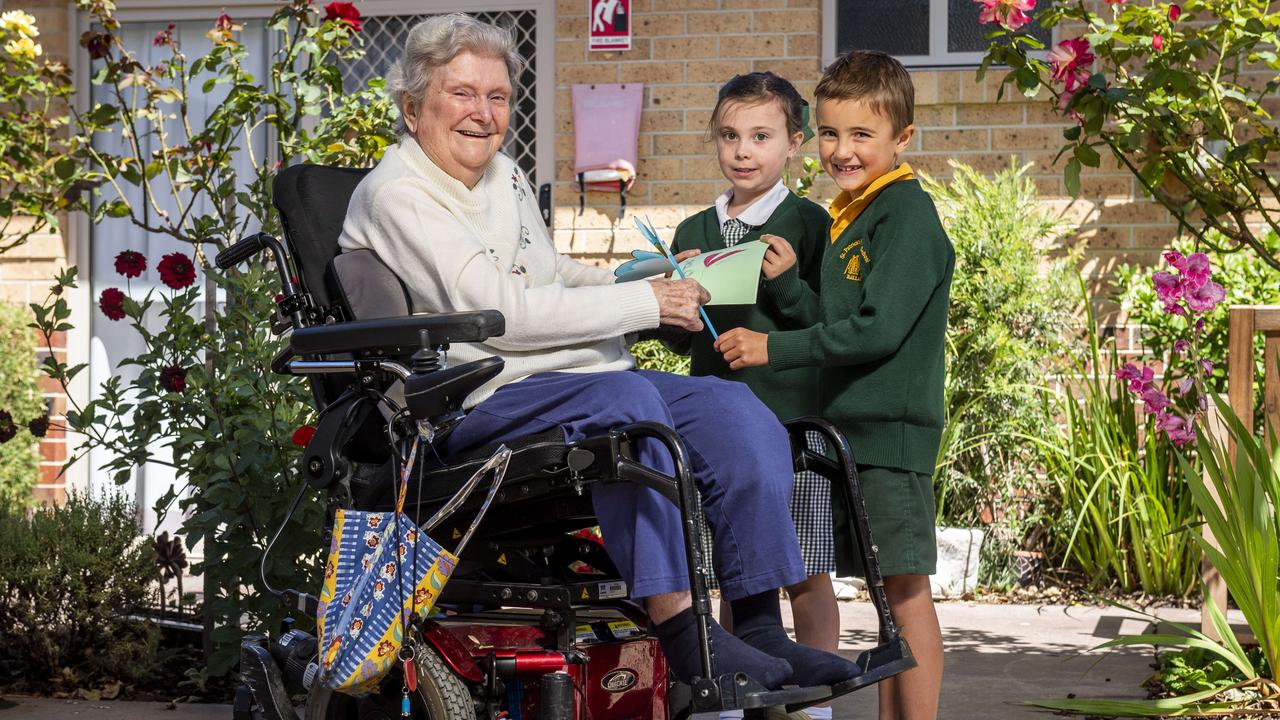
Margaret Griffiths, whose family lives in Bendigo and was unable to travel, agrees.
“Having somebody who wrote to me was just lovely. It’s just getting the letters,” she said, “it’s lovely.”
Resident Annie Bullard echoes the sentiment, saying having the letters to look forward to, and knowing somebody in the community was thinking about you “made a wonderful difference.”
To ensure the safety of residents, letters sent during the peak of Victoria’s COVID outbreak were quarantined for two weeks before they were sent, and again once they were received by the facility.
By Christmas, the students were making decorations for each of the 144 residents, and now plan to visit when restrictions are fully eased.
“It’ll be wonderful to put a face to the names,” Ms Payne said.
‘GIVING BACK IS THERAPEUTIC’
After retiring from a 40-year career in the aged care sector, Julie Fila felt compelled to return in a volunteer capacity.
A Jill of all trades, Ms Fila gives her time once a week at the Bupa Aged Care centre in Tugun, on the Gold Coast, where she had worked prior to retiring.
She helps organise raffles, Valentine’s Day dances, takes residents to appointments, assists with annual functions for events, like the Melbourne Cup and Christmas Day, leads singalong and afternoon dances, and even calls the bingo.
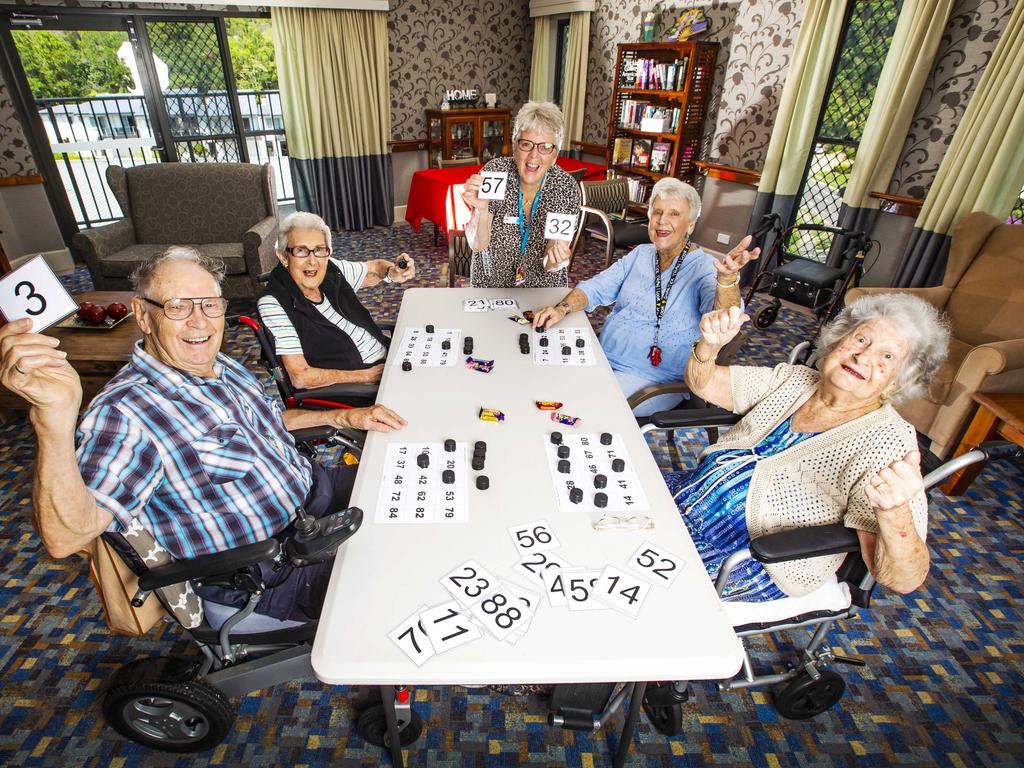
“Volunteering is meaningful for you and the person, and giving back is very therapeutic,” Mr Fila said.
Ms Fila also says that through volunteering she’s made some incredible and close friendships with the residents and their family members, who aren’t always able to visit regularly or live interstate.
“It’s just so satisfying to see them enjoying themselves in the last stage of your life,” she said.
“The more you give the happier you feel.”
‘I’VE NEVER SEEN ANYTHING LIKE IT’
At Campbelltown’s Bupa Aged Care facility in South Australia, residents have been receiving cards and letters from local school children on and off for years.
But correspondence dramatically increased during the COVID-19 lockdown, as young locals decided to reach out and let aged care residents know there was somebody thinking of them.
For resident Maureen Martens, 88, receiving these letters – which covered topics from how many siblings a letter writer had and how they were adapting to home schooling, to messages of positivity and simple heartfelt messages reminding Ms Martens to keep on smiling – made a huge difference.
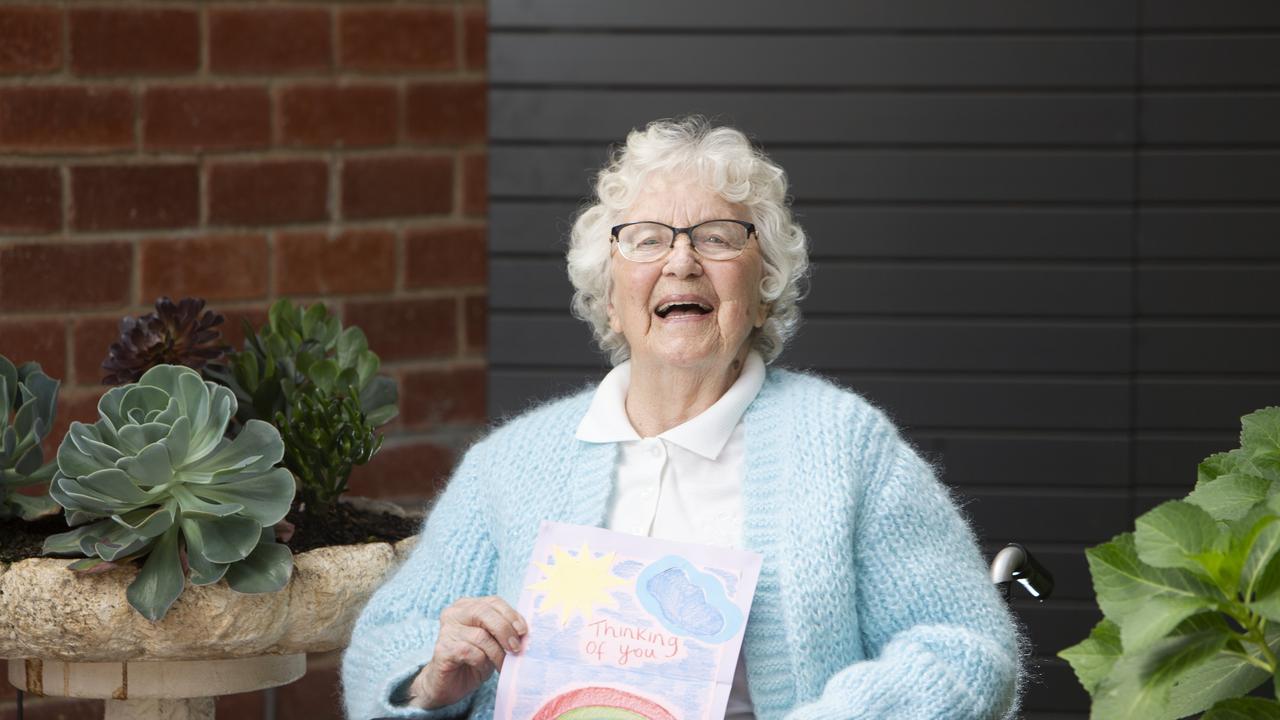
“I still had contact with family over the phone, but the kids did a wonderful job of making us happy,” Ms Martens said.
“I’ve never seen anything done like that before, it was just so lovely.”
The cards and letters she received now take pride of place in Ms Marten’s room, a source of positivity, hope and encouragement every day.
Learn more about volunteering via HammondCare here, and Bupa here. You can also joinBupa’s Visits by Mail program.




